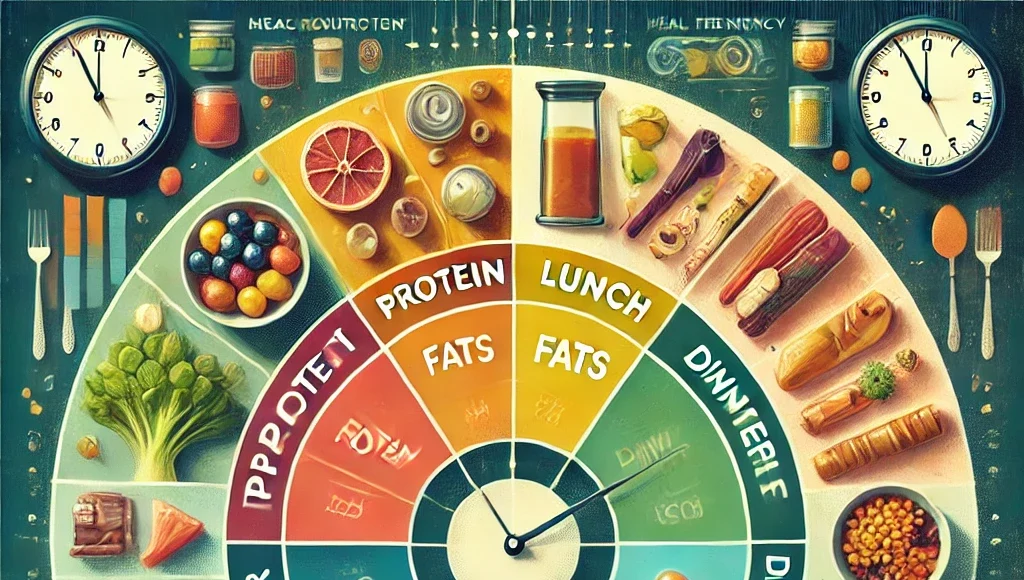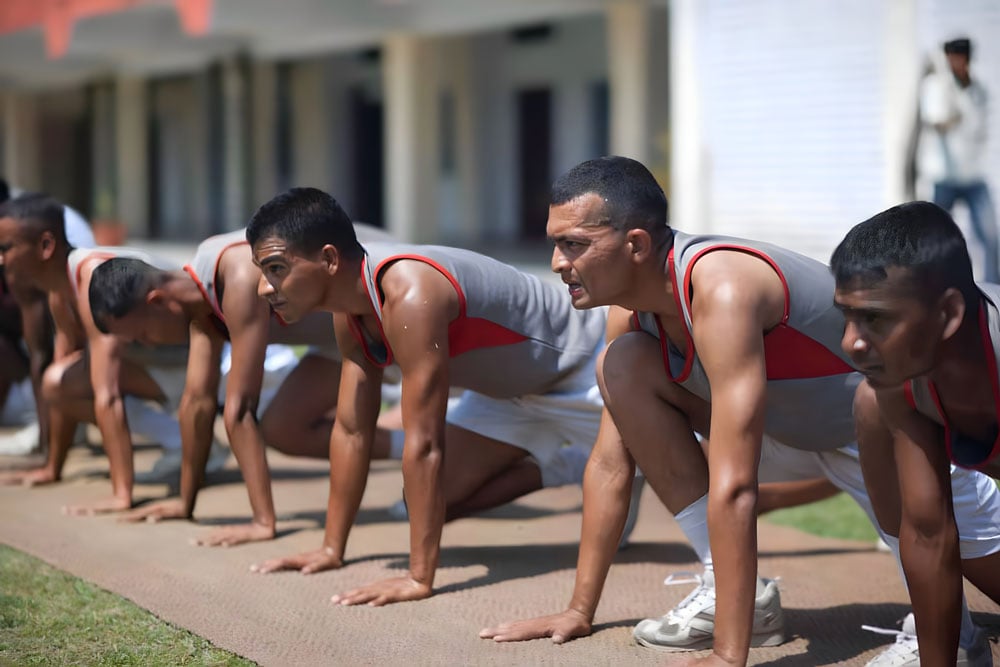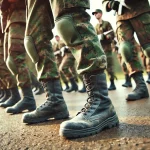Preparing for the prestigious SSB (Services Selection Board) Interview is a challenging endeavor that requires meticulous planning and dedication. One crucial aspect of this preparation is ensuring that you meet the strict physical standards set by the Indian Armed Forces, which often includes achieving a specific weight target.
While the prospect of rapid weight loss may seem daunting, it is possible to shed those extra pounds safely and effectively, setting you up for success in the SSB medical examination. In this comprehensive guide, we will share science-backed tips and strategies to help you lose weight fast and sustainably, empowering you to excel in the SSB Interview and beyond.
Understanding the Fundamentals of Weight Loss
Before delving into the specific tips and techniques, it’s essential to grasp the fundamental principles of weight loss. Contrary to popular belief, weight loss is not solely about cutting carbs or exercising relentlessly. Rather, it boils down to the delicate balance between the calories you consume and the calories you burn.

This is known as the calorie balance equation. If you consume more calories than your body requires, you will gain weight. Conversely, if you create a calorie deficit by consuming fewer calories than you burn, you will lose weight. However, it’s crucial to strike the right balance to ensure that you’re losing fat, not muscle, and maintaining a healthy metabolism.
Establishing a Sustainable Nutrition Plan
One of the cornerstones of successful weight loss is a well-structured nutrition plan. Begin by closely examining your current eating habits and identifying areas for improvement. Steer clear of processed foods, which are often high in calories, low in nutrients, and can trigger cravings and overeating. Instead, focus on incorporating whole, nutrient-dense foods into your meals, such as fresh fruits, vegetables, lean proteins, whole grains, and healthy fats.
Macronutrient Balance
Ensure that your meals are well-balanced, containing an appropriate mix of macronutrients – protein, carbohydrates, and healthy fats. Protein helps you feel fuller for longer, supports muscle retention, and boosts metabolism. Carbohydrates, when consumed in moderation and from complex sources, provide sustained energy. Healthy fats are essential for hormone regulation, brain function, and overall health.

Meal Frequency and Portion Control
Distribute your daily caloric intake across 4-6 smaller meals throughout the day, rather than relying on a few large meals. This approach can help regulate blood sugar levels, curb cravings, and maintain a steady energy supply. Additionally, be mindful of your portion sizes, as it’s easy to overeat even when consuming healthy foods.
Hydration and Fiber Intake
Staying hydrated is crucial for weight loss, as it can help suppress appetite, boost metabolism, and promote overall well-being. Aim to drink at least 8 glasses of water per day. Incorporating fiber-rich foods, such as fruits, vegetables, and whole grains, can also aid in weight loss by keeping you feeling full and satisfied.
Optimizing Your Exercise Routine
Alongside a balanced nutrition plan, a well-structured exercise regimen is essential for effective and sustainable weight loss. Incorporate a combination of cardiovascular exercises, strength training, and flexibility-enhancing activities to maximize your results.

Cardiovascular Exercise
Engage in regular cardiovascular exercises, such as running, cycling, swimming, or brisk walking, to burn calories and improve your overall fitness. Aim for at least 150 minutes of moderate-intensity cardio or 75 minutes of high-intensity cardio per week.
Strength Training
Incorporate strength-building exercises, such as weightlifting, bodyweight exercises, or resistance training, to build lean muscle mass. Increased muscle mass not only enhances your physical appearance but also boosts your metabolism, allowing you to burn more calories even at rest.
Flexibility and Mobility
Don’t neglect flexibility and mobility exercises, such as yoga or dynamic stretching. These activities can improve your range of motion, reduce the risk of injury, and promote overall physical well-being, which can support your weight loss efforts.
Consistency and Progression
Consistency is key when it comes to exercise. Establish a regular routine and gradually increase the intensity, duration, and frequency of your workouts over time to continually challenge your body and drive progress.
Prioritizing Sleep and Stress Management
While diet and exercise are crucial components of weight loss, often overlooked factors such as sleep and stress management can have a significant impact on your success.

Adequate Sleep
Aim for 7-9 hours of quality sleep each night. Insufficient sleep can disrupt your hormones, increase hunger and cravings, and hinder your body’s ability to recover and replenish.
Stress Management
High levels of stress can lead to emotional eating, hormone imbalances, and a slower metabolism. Incorporate stress-reducing activities, such as meditation, deep breathing exercises, or engaging in hobbies you enjoy, to maintain a healthy mindset and support your weight loss journey.
Monitoring Progress and Adjusting Accordingly
Regularly track your progress to ensure that you’re on the right track and make necessary adjustments to your plan. This may involve monitoring your weight, body measurements, and overall well-being. Be patient and celebrate small victories along the way, as sustainable weight loss is a gradual process.
Embracing a Lifestyle Approach
Remember, the ultimate goal is not just to lose weight for the SSB medical examination but to adopt a healthier lifestyle that you can maintain in the long run. Avoid crash diets or extreme measures, as these can be detrimental to your health and lead to weight regain. Instead, focus on developing sustainable habits that align with your personal preferences and long-term well-being.
Incorporating Outdoor Activities
In addition to your structured exercise routine, consider incorporating outdoor activities that align with the Indian Armed Forces’ emphasis on physical fitness. Engage in activities such as football, volleyball, badminton, or swimming, which can help you build endurance, improve cardiovascular health, and burn calories in a fun and engaging way.
Sample Meal Plan for Weight Loss
To provide you with a starting point, here’s a sample meal plan that can help you lose weight safely and effectively:
Indian Diet Plan
| Meal | Menu |
|---|---|
| Early Morning (6:30 AM – 7:00 AM) | A glass of warm water with lemon or jeera (cumin) water. 5 soaked almonds or walnuts. |
| Breakfast (8:00 AM – 9:00 AM) | Option 1: Vegetable poha (flattened rice) with peas, carrots, and a side of curd. Option 2: 2-3 idlis with sambar and coconut chutney. A fruit like a banana or an apple. |
| Mid-Morning Snack (11:00 AM) | 1 seasonal fruit like an orange, apple, or papaya. A cup of green tea or herbal tea. |
| Lunch (1:00 PM – 2:00 PM) | Option 1: 1-2 whole wheat rotis with dal (lentils), sabzi (vegetable curry), a bowl of curd, and a small salad. Option 2: Brown rice with grilled paneer or fish curry and a side of vegetables like spinach or cauliflower. |
| Evening Snack (4:00 PM – 5:00 PM) | Roasted chana (chickpeas) or makhana (fox nuts), or a handful of nuts with a cup of green tea or buttermilk. |
| Dinner (7:00 PM – 8:00 PM) | Option 1: Grilled chicken or paneer tikka with stir-fried vegetables and a small serving of dal or soup. Option 2: Light khichdi made with moong dal, vegetables like carrots, and a side of raita. |
| Bedtime (9:30 PM – 10:00 PM) | A glass of warm milk with a pinch of turmeric or 1-2 dates. |
Tips for SSB Interview Weight Loss
- Get 7-8 hours of quality sleep every night- Sleep is the most important habit of all to assist you in losing weight fast. The more quality sleep you get, the easier it gets to control hunger and gives you more energy to exercise. Insufficient sleep causes increased hunger, muscle loss, and weight gain.
- Replace processed foods with whole foods- The root cause of obesity is unarguably processed foods. Strictly cut down food that is processed, like french fries, doughnuts, cake, etc. from your meals because they provide with significant calories without filling you up and the worst part is that they will shoot your hunger levels shortly after consuming such foods. Eat foods in their natural state or close to their natural state like apples, fish, lettuce, eggs, etc.
- Eat protein with every meal- High protein diet helps you lose weight faster than consuming low carbs diet.
- Drink 10-12 glasses of water every day- It is recommended to drink plenty of water because it is strongly associated with improved weight loss. Always keep yourself hydrated that maintains your energy levels and gives you the sensation of satiety (fullness).
- Follow a nutrition plan- You know about your current eating habits, target and create a nutrition plan and follow it every day. Have a systematic approach and stay uniform in your nutritional eating habits.
- Do full body workouts 5x a week (Body Physical Training)- Training your entire body with workouts or regular physical activities will help you elevate metabolism and calorie burn while preventing muscle loss. Focus on multi-joint exercises like push ups, pull ups, squats, etc. that involve large muscle groups.
- Exercises- Actively engage yourself in activities that require manpower. Also, exercise before heavy workouts; warm up, jog, run, roll, stretch etc. Walk 7500+ steps every day.
- Do Yoga 5x a week- Include Yoga in you daily routine, that will help you lose weight and stress both. Do 10-20 minutes of yoga to reap benefits of this exercise form.
- Go for outdoor activities- Apart from the exercises and workouts mentioned above, you may also incline towards outdoor games like football, volleyball, badminton that require high stamina and let you lose weight quickly and promote wholesome physical development.
- Swimming- This is the perfect activity for overall body workout. It builds your endurance, cardiovascular fitness, muscle strength and burns calories required to lose weight. Swimming has been highly appreciated and regularly praised for weight loss.
Some more tips:
- Take at least 20 minutes to eat your meals.
- Avoid extreme low-calorie diets (the strategy to lose weight may backfire if you eat extremely low-calorie foods).
- Eat salad for lunch (or dinner).
- Eliminate sugary or aerated drinks.
- Drink a glass of water before your meals.
- Drink black coffee.
- Drink Green Tea without sugar.
- Eliminate alcohol.
- Go to bed before midnight.
- Sleep in a cool, dark room.
- Drink warm lime water on an empty stomach every morning.
- Take 15-20 minutes walk after your meals.
And remember the most crucial tip that you have to equip yourself with- Be Consistent in your habits! Understand that consistency is essential and nothing is achieved without it.
Embarking on a weight loss journey for the SSB medical examination requires a comprehensive and sustainable approach. By understanding the fundamental principles of weight loss, establishing a balanced nutrition plan, optimizing your exercise routine, prioritizing sleep and stress management, and embracing a lifestyle approach, you can achieve your weight loss goals safely and effectively.
Remember, the key to success lies in consistency, patience, and a commitment to your long-term well-being. With the right strategies and a determined mindset, you can conquer the physical requirements of the SSB Interview and pave the way for a rewarding career in the esteemed Indian Armed Forces.
FAQs
How much weight is required for SSB?
The weight requirements for the SSB medical examination can vary depending on the specific branch of the Indian Armed Forces you are applying for. Generally, the weight standards are based on your height, age, and gender. It’s essential to consult the latest guidelines provided by the Indian Armed Forces to ensure that you meet the required weight criteria.
Is weight an issue in SSB?
Yes, weight is a crucial factor in the SSB medical examination. The Indian Armed Forces have strict physical standards, including weight requirements, that candidates must meet to be considered fit for service. Failing to meet the weight standards can result in disqualification from the selection process.
Is the SSB interview very difficult?
The SSB interview is widely regarded as one of the most challenging and comprehensive selection processes for the Indian Armed Forces. It involves a multi-day assessment that evaluates candidates’ physical fitness, mental aptitude, leadership skills, and overall suitability for military service. While it is a demanding process, with proper preparation and a positive mindset, candidates can increase their chances of success.
What if I am overweight in SSB?
If you are found to be overweight during the SSB medical examination, you may be given the opportunity to lose the excess weight within a specified timeframe and undergo a re-evaluation.













